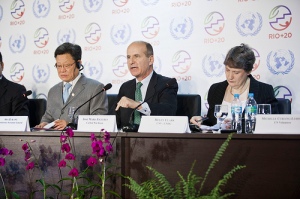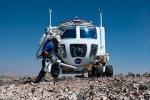Maina Waruru
Freelance journalist, SciDev.Net
Kenya’s science journalism body, the Media for Environment, Science, Health and Agriculture (MESHA) will bid to host the 2016 World Conference of Science Journalism (WCSJ), in partnership with the African Federation of Science Journalists.
The body will be seeking support from WCSJ affiliate bodies in its bid to host the event in Kenya. If successful, this would be the first time the conference is staged in Africa.
MESHA Kenya chair Violet Otindo told delegates at the official opening of the African Science Journalist Conference (ASJC) on Tuesday night that the experiences gained from hosting the first ever ASJC had given them enough courage to bid for the global event.
“The fact that we have successfully hosted the ASJC event, the first ever on the African continent, has given us enough confidence to bid for the world event,” she said. “We do not feel the event will be any different from what we are hosting today – the only difference is that the world conference will be much bigger,” she added.
Kenya’s minister for Higher Education, Science and Technology, Margaret Kamar, said the Kenyan government will support Kenya’s bid to host the event, saying that such a move would put the country and Africa’s science journalism on the world map.
“I’m assuring you of my personal and government support in seeking to host the event, and indeed we will support you in whichever way we can,” said the minister when she officially opened the ASJC in Kenya’s Rift Valley town of Nakuru.
With over 100 journalists present, enthusiasm for the bid spread quickly. Former BBC Africa editor and Knight Journalism fellow Joseph Warungu said that Africa must not again miss the chance to host the event.
“We feel the 2011 WCSJ was a missed opportunity for Africa and this time we must make sure we succeed,” he said.
The last WCSJ event was staged in Doha, Qatar after it was moved from Cairo, Egypt at the last minute following political upheavals in the north African country. Next year’s conference will be hosted by Finland.
This blog post is part of our Africa Science Journalists Conference 2012 blog, which takes place 20-23 August in Nakuru, Kenya. To read news and analysis on science journalism please visit our website.





 Posted by scidevnet
Posted by scidevnet 












You must be logged in to post a comment.